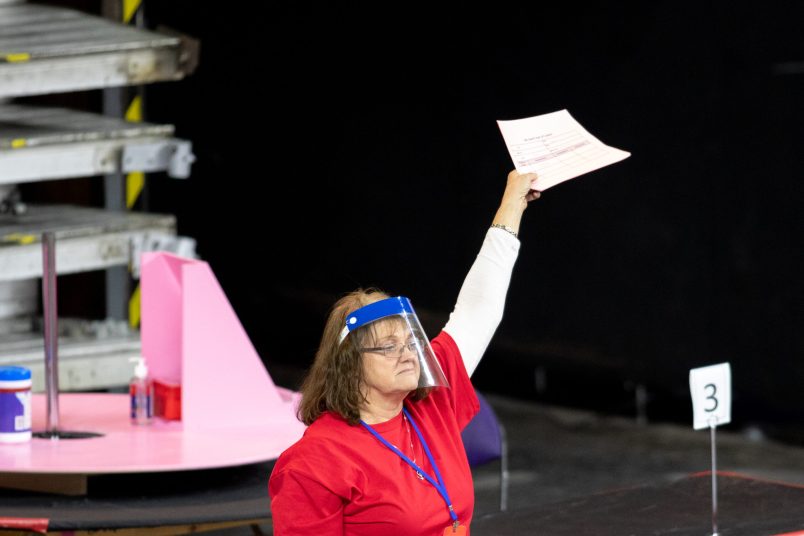The Arizona Senate has said it will hold off on a controversial plan to knock on voters’ doors as part of a Republican-commissioned election recount that raised concerns about voter intimidation.
State Senate President Karen Fann (R) said in a letter to the Department of Justice Friday that the door-to-door effort to interview voters as part of an audit of Maricopa County’s 2020 election results would not go forward after federal officials raised concerns that the canvassing could violate civil rights laws protecting against voter intimidation.
The audit has persisted amid former President Donald Trump’s ongoing promotion of the lie of a stolen election, even as county officials say the 2020 election results which favored President Joe Biden have been validated repeatedly.
The head of the department’s civil rights division, Pamela Karlan, had written to Fann on Wednesday suggesting that the recount by Cyber Ninjas, a Florida-based firm contracted bu the state Senate to conduct the recount may not comply with federal law.
In the letter Karlan cited concerns over “risk of damage or loss” to the nearly 2.1 million ballots and raised questions about Cyber Ninjas’ stated plans to “statistically identify voter registrations that did not make sense” and conduct interviews with voters by phone and “physical canvassing.”
“Such investigative efforts can have a significant intimidating effect on qualified voters that can deter them from seeking to vote in the future,” Karlan wrote.
She also said similar investigation efforts around the country had “raised concerns that they can be directed at minority voters, which potentially can implicate the anti-intimidation prohibitions of the Voting Rights Act.”
Cyber Ninjas had said it put together a “registration and votes cast team” which had plans to knock on doors to confirm if valid voters lived at their stated address.
According to the Arizona Republic, Doug Logan, the company’s chief executive, declined to reveal during a press conference late last month how the company had gone about selecting which voters it would investigate. He reportedly said at the time that the work was based on a statistical analysis performed by a person he would not identify and maintained that canvassers would not ask anyone how they voted.
In a reply on Friday, Fann wrote that the Senate “several weeks ago” had determined it would “indefinitely defer” the canvassing part of the audit.
Fann left open the possibility of canvassing at a later date but said voters would not be selected based on characteristics like race, ethnicity, gender, or party affiliation.
She also said canvassers would not carry a weapon, would not ask which candidates voters had supported and would convey to voters that their interview response was voluntary.
“If canvassing is necessary to complete the audit, we believe these protocols, which will be reinforced by thorough training programs, would permit the Senate to discharge its legislative oversight and investigation functions without compromising the rights or privacy of any voter,” Fann wrote.
While successive audits of last year’s election results have continued to show there is no evidence of widespread election fraud, the state Senate’s sweeping audit has lended legitimacy to wild conspiracy theories made by right-wing activists — to the point that auditors have employed UV search lights and have reportedly scanned ballots for flecks of bamboo fibers.










